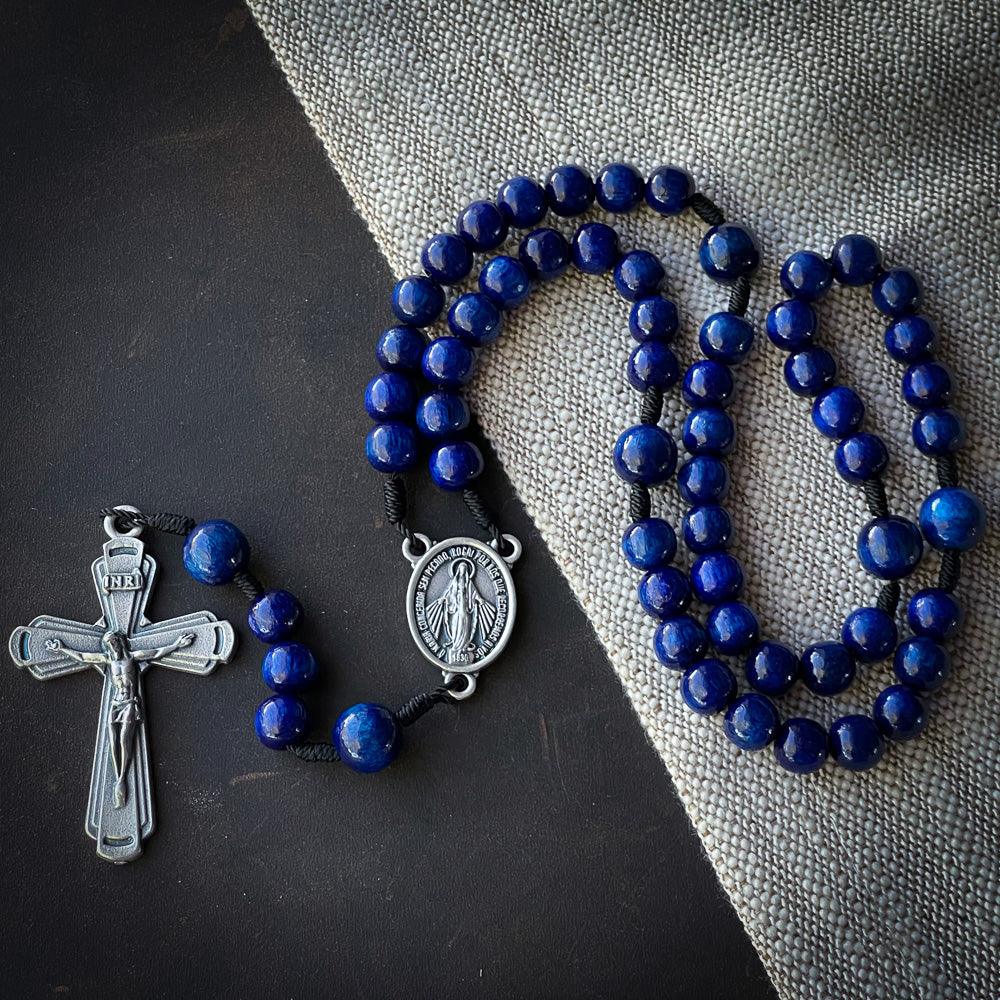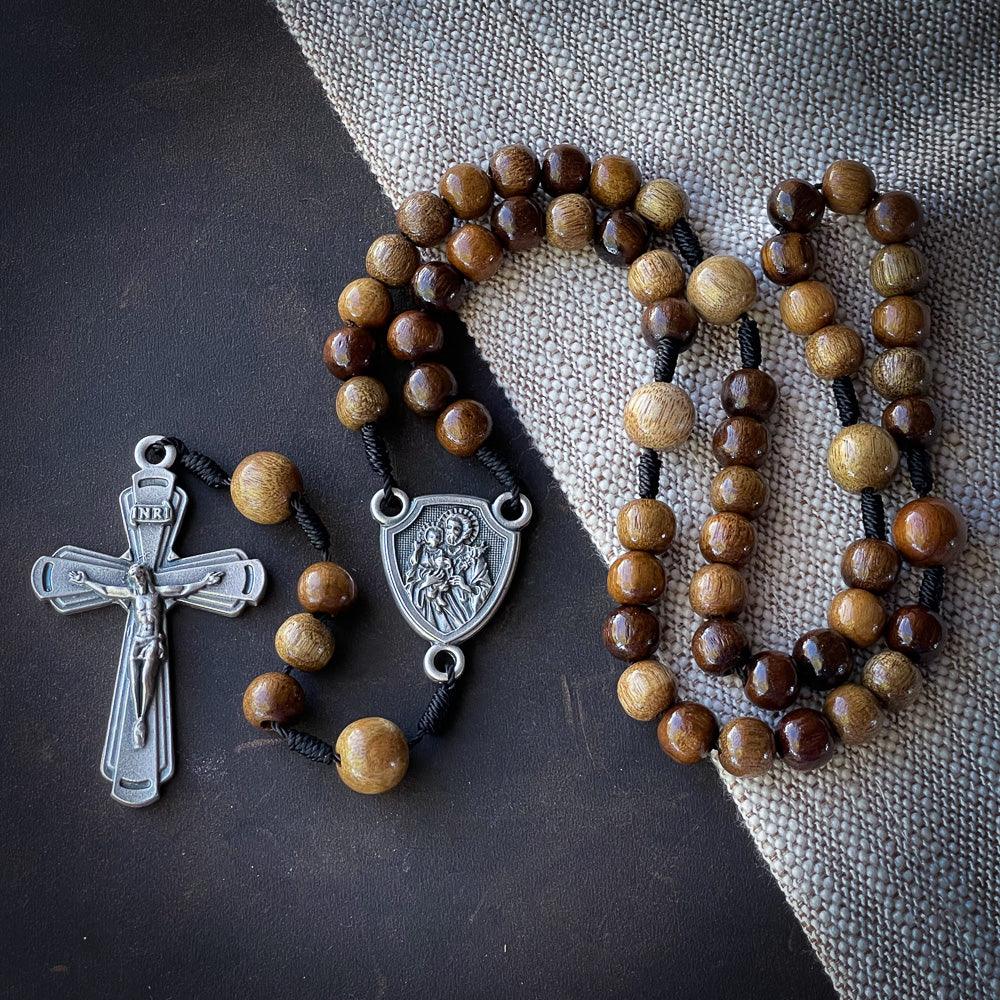Each month we pick a content theme we want to focus on, and we thought “JOY” would be a great word to reflect on during the Advent season leading up to Christmas. You will notice that gratitude and joy are intertwined and for good reason. The Benedictine Brother David Steindl-Rast rightly noted that "It is not joy that makes us grateful; it is gratitude that makes us joyful.”
I am grateful for many things, but most of the things on that list bring me joy so gratitude is easy in that sense. It becomes much more difficult when considering the PIECES of my life that I don’t love.
Understanding the PIECES of Our Lives
PIECES is an acronym created by Dr. Peter Malinoski to capture the various parts of our life that we do not choose. These pieces make up a good chunk of what we pray about, worry about, and often loath:
- Persons – my family members, neighbors, coworkers, friends, all the people I am in contact with.
- Institutions – My school, the company I work for, my Church, my parish, professional, social and fraternal organizations, etc.
- Events – The things that happen in my life (past and present), and in the lives of those near to me.
- Circumstances – current conditions, conditions, states of affairs and factors in my environment that impact my life and welfare, and the lives and welfare of those around me.
- Experiences – what I perceive with my senses, and my internal reactions. These include my emotions, thoughts, impulses, desires, attitudes, perceptions, memories, temptations, pain, body sensations, distress, psychological symptoms, and any other subjective happenings within my psyche, soul, or body.
- Systems – integrated networks of interrelated members who interact in a larger whole, such as my family, my friend groups, social clubs, all of which may not be formal institutions. Also includes levels of government.
Three Attitudes Towards Life's PIECES
In Fr. Phillippe’s book, Interior Freedom, he talks about three possible attitudes we can have towards our life, and as Dr. Peter argues, the PIECES of our life:
- Rebellion
- Resignation
- Consent/Acceptance
It is in accepting and embracing those PIECES where the fruit of gratitude is born. To be clear, accepting a piece of my life as a gift that can help me grow in holiness is NOT the same thing as believing a lie that the piece is objectively good in and of itself.
Personal Reflections on Acceptance and Life's Challenges
Take for example, a loved one who has left the church. Acceptance looks like acknowledging that their sanctification is in danger, that God is in charge, that you have a part to play and He will reveal it to you. Acceptance also includes surrendering to the reality that you do not have the power to control the piece, and you don’t have the knowledge to see the true fruits born from this broken piece.
The Journey from Rebellion to Resignation
When I am most frustrated, overwhelmed, anxious, or discouraged it is usually connected to an attitude of resignation or rebellion against one of these pieces. In my youth, the impulse to rebel was much stronger. I would classify it as overt rebellion, an active intentional rebellion. At this stage in my life, rebellion is more subconscious. It often stems from a lack of trust in God, and it looks like clinging to some lesser good instead of accepting that difficult piece.
Navigating Between Resignation and Acceptance
This delicate balance between resignation and acceptance can be really challenging. It’s not a one-time thing. It’s a daily struggle. This is where I see the real potential power of the rosary for all of us. Is it good to pray for an end to abortion? Yes. What about an end to Christian Persecution? Yes. Human Trafficking? Yes. All of the above, and if praying for those things alone grants you peace then by all means stay the course. For the rest of you who pray the rosary daily, and struggle to experience gratitude and joy for the broken pieces in your life, consider the following approach.
A New Approach to Praying the Rosary
Every time you find yourself distracted during the rosary: name the distraction. Then, acknowledge it as something important, an insight worth praying over. As your fingers continue to cycle through the beads, let the light of the rosary illuminate this important piece of your life. Do not problem solve, do not attempt to fix it. If you find yourself hyper-focused on “fixing” the problem, you’ll need to go a layer deeper. Ask the part of you that’s holding onto the need for this piece of your life to be fixed, “what are you afraid will happen if this doesn’t get fixed?” or “what does fixed look like?”.
Embracing Trust and Surrender in Prayer
Then be honest with Mary, “I don’t trust that you care about this piece of my life more than I do. I don’t trust that it will be good for me or anyone else. I don’t want it in my life. I hate it! It scares me, makes me angry, disgusts me, overwhelms me…make it go away! But not my will. Help me see the part I can play in this broken piece of my life, and help me surrender the rest to you. I do not want to surrender it, but I want to trust you. I want to believe God is bigger than this broken piece. I want to believe that God knows the good He can draw from it, and that good is greater than the brokenness I see. Help my unbelief”.
Pause your rosary to say this prayer. If that prayer takes up all the time you had for the rosary, praise God that the rosary brought you into such a beautiful place of intimate prayer and conversation with God through Mary. Repeat this process until you have found acceptance with that broken piece of your life. Then, move on to the next one.
Action Item: Finding JOY in Life's Broken Pieces
I truly believe that this recipe for praying the rosary can lead to an abundance of gratitude for the broken pieces in our life that consume us and fuel our anger, our fear, and our anxiety. Practicing gratitude will in turn lead to joy as we learn to develop trust God's providence in our lives.
Make a list of 3-5 broken pieces in your life that are outside your control, that you’d be open to feeling grateful for this Christmas. Let those broken pieces be the focal point of your prayers this Advent Season.









